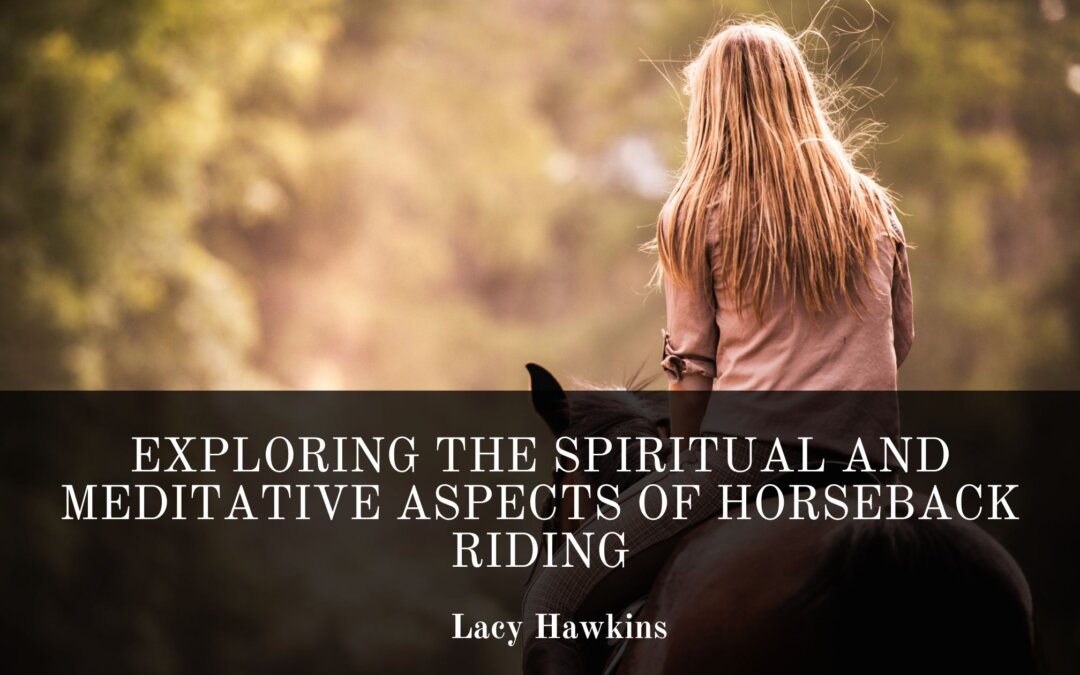Horseback riding, often perceived as thrilling and physically engaging, transcends beyond its surface appeal to unveil a rich tapestry of spiritual and meditative dimensions. This age-old practice, deeply intertwined with human history and culture, offers a unique pathway to mindfulness and self-discovery, forging a profound connection between the rider, the horse, and the natural world.
A Dance of Connection and Trust
At the heart of horseback riding lies the symbiotic relationship between the rider and the horse. This bond, built on mutual trust and respect, is a dance of subtle cues and silent communication. Riders must be attuned to the horse’s movements, learning to anticipate and respond to the animal’s needs and signals. This heightened awareness fosters a deep connection, mirroring the meditative practice of being present in the moment.
When riding, the rhythm of the horse’s gait creates a natural cadence that can be soothing and hypnotic. This rhythmic motion encourages riders to synchronize their breath with the horse’s strides, promoting relaxation and mental clarity. The repetitive motion and the need for constant focus on balance and coordination act as a meditative practice, quieting the mind and anchoring it in the present.
Nature as a Sanctuary
Horseback riding often occurs in serene, natural settings, like lush forests, expansive fields, or rugged trails. Immersed in nature, riders experience a sense of escape from the hustle and bustle of daily life. The natural environment’s sights, sounds, and smells enhance the sensory experience, grounding the rider and fostering a sense of peace and tranquility.
This immersion in nature can be deeply spiritual. Many riders describe a feeling of oneness with the earth, a connection to life’s primal and timeless rhythm. Riding through varied landscapes can evoke a sense of journeying through physical space and one’s inner landscape, encouraging introspection and self-reflection.
Mindfulness and Emotional Balance
The meditative aspects of horseback riding are closely linked to mindfulness. Riders must maintain a heightened concentration level, focusing on their posture, the horse’s movements, and the surrounding environment. This mindfulness helps riders to develop greater body awareness and emotional balance.
The presence of the horse, a sensitive and intuitive creature, also plays a crucial role in the rider’s emotional state. Horses are known for mirroring human emotions and responding to the rider’s mood and energy. This dynamic can serve as a powerful tool for emotional regulation. Riders learn to manage their feelings, as a calm and centered rider creates a calm and responsive horse. This interaction can be incredibly therapeutic, mirroring the rider’s inner state and promoting emotional healing.
A Journey of Self-Discovery
Ultimately, horseback riding is a journey of self-discovery. It challenges riders to overcome fears, develop patience, and build resilience. Learning to communicate with a horse and mastering the skills required to ride proficiently fosters a sense of achievement and empowerment. This journey can be transformative, leading to greater self-confidence and a deeper understanding of oneself.
In conclusion, horseback riding is much more than a recreational activity. It is a spiritual and meditative practice that nurtures the body, mind, and soul. Through the harmonious connection with a horse, immersion in nature, and the cultivation of mindfulness, riders embark on a journey of inner exploration and personal growth. This timeless bond between humans and horses continues to offer a profound and enriching experience, inviting us to find peace, balance, and insight in the rhythm of the ride.
